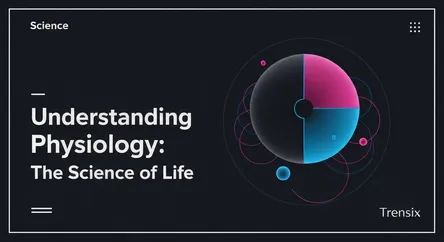Science
Understanding Physiology: The Science of Life

An introduction to physiology, the science of how living organisms function, and its importance in health, medicine, and everyday life.
What is it?
Physiology is the scientific study of how living things function, from the smallest cells to entire organisms. A sub-discipline of biology, it explores the mechanical, physical, and biochemical processes that support life. Human physiology focuses on how the body's various systems—such as the cardiovascular, respiratory, and nervous systems—work and interact to maintain a stable, healthy internal condition. It seeks to understand the complex mechanisms that keep us alive and functioning.
Why is it trending?
Physiology is a cornerstone of modern medicine and health sciences. An understanding of normal bodily function is essential for diagnosing and treating diseases more effectively. The field is constantly evolving with research into how our bodies respond to stresses like exercise, different environments, and aging. There's also growing interest in how environmental factors and genetics interact, influencing our health and susceptibility to illness over our lifetime. This research is crucial for developing new therapies and promoting overall well-being.
How does it affect people?
Physiology directly impacts everyone's daily life and health. It provides the scientific basis for medical treatments and for making informed decisions about diet, exercise, and lifestyle. Understanding how your body works helps you grasp why you need to sleep, how you get energy from food, and why exercise keeps your heart healthy. This knowledge empowers people to better manage their health, understand diseases, and appreciate the intricate processes that allow their bodies to adapt and thrive.